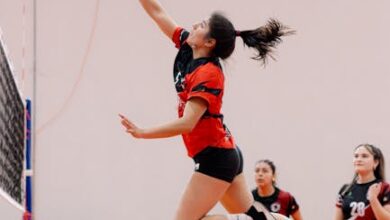The Weight on Young Shoulders – Lamine Yamal’s Predicament

The life of a professional footballer, especially a prodigy, isn’t just about scoring goals and lifting trophies. It’s often a tightrope walk, particularly when two powerful entities — your club and your country — demand your very best, sometimes simultaneously. This isn’t a new story, but it’s one that’s reaching a critical point with the astonishing rise of talents like Barcelona’s Lamine Yamal.
At just 16, he’s already dazzling the world, yet even his meteoric ascent comes with a heavy price, one that Spain coach Luis de la Fuente recently acknowledged with startling honesty. Yamal, he said, is the “main victim” of this age-old club versus country row. A powerful statement indeed, laying bare the immense pressure on the shoulders of football’s next big thing.
The Weight on Young Shoulders – Lamine Yamal’s Predicament
This admission isn’t just a throwaway line; it’s a profound statement that underscores the unique pressure cooker Lamine Yamal finds himself in. Here’s a player who, barely out of primary school, is already a fixture for one of the world’s biggest clubs, Barcelona, and a senior international for Spain. His burgeoning talent is undeniable, a rare blend of dribbling wizardry, vision, and audacious confidence that belies his tender years. But with great talent comes great demand.
The immediate consequence of this club versus country tug-of-war is Yamal’s absence from Spain’s upcoming World Cup qualifiers against Georgia and Turkey. On one hand, it’s a relief – a young body gets a much-needed reprieve. On the other, it’s a stark reminder of the delicate balance that coaches, medical teams, and federations are constantly trying to strike. A star player like Yamal is a vital asset for both his club, fighting for league titles and Champions League glory, and his national team, vying for a spot on the biggest global stage.
De la Fuente’s candid remark about Yamal being the “main victim” isn’t just empathy; it’s an acknowledgement of the system’s inherent flaw. Imagine being 16, playing against seasoned professionals week in and week out, then being expected to switch gears, travel across continents, and perform at the highest level for your nation, all while your body is still developing. The physical toll is immense, but perhaps even more so is the mental pressure. There’s little room for error, even less for a normal teenage life.
The Double-Edged Sword of Prodigy Status
For players like Lamine Yamal, the pathway to stardom is often accelerated, compressing years of gradual development into a few intense months. While thrilling for fans, this rapid ascent means skipping vital stages of physical and mental maturation that most athletes experience. They are thrust into the spotlight, expected to perform at elite levels before their bodies or minds have fully caught up.
This creates a precarious situation where the demands placed upon them by both club and country can become unsustainable. The very institutions that nurture their talent are also the ones inadvertently contributing to their vulnerability. It’s a paradox that highlights the urgent need for a more holistic approach to managing young, exceptional talents.
The Enduring Club vs. Country Conundrum
While Yamal’s case shines a spotlight on the issue, this isn’t an isolated incident. The club versus country debate is as old as international football itself, a cyclical argument that intensifies whenever a major tournament looms or an international break causes a flurry of injuries. Every four years, or even more frequently with the packed international calendar, we see this drama unfold – clubs fretting over their star assets, national teams demanding full commitment, and players often caught in the middle.
From the club’s perspective, the logic is clear: they scouted, developed, invested millions in contracts and wages, and built their strategy around these players. An injury picked up on international duty can derail an entire season, costing millions more in lost prize money, transfer value, and fan disappointment. For them, player welfare is paramount, but often it’s viewed through the lens of protecting their enormous financial and sporting investment.
National teams, conversely, operate on national pride and the imperative to qualify and compete at the highest level. They demand the best players available to represent their country, a dream for most footballers. The pressure from fans, media, and federations to field a strong team is immense. To deny a call-up is often seen as unpatriotic or a slight against the national cause.
The Player in the Crossfire
And then there’s the player, often the unsung victim in this power struggle. Most footballers dream of representing their country, just as they dream of playing for top clubs. They are torn, wanting to give their all to both. But their bodies have limits. The sheer volume of games, the travel, the constant pressure to perform – it all adds up. We’ve seen countless careers shortened or marred by injuries sustained due to excessive demands. Remember the likes of Michael Owen, the Brazilian Ronaldo, or more recently, countless others struggling with hamstring and knee issues after gruelling seasons peppered with international breaks.
Protecting the Future – A Collective Responsibility
So, what’s the way forward? De la Fuente’s admission is a vital first step: acknowledging the problem. But moving beyond mere acknowledgement requires a collective commitment to player welfare. This isn’t just about saving Lamine Yamal; it’s about preserving the future of the game itself and nurturing its brightest talents.
One key area is better communication and collaboration between clubs and national teams. Instead of viewing each other as adversaries, there needs to be a unified approach to player load management. This could involve sharing medical data, jointly planning training regimes, and establishing clear guidelines on playing time, especially for young players. Some might even suggest borrowing a page from American sports like the NBA, where “load management” has become a strategic tool to keep stars fresh for crucial periods.
National federations and governing bodies like FIFA and UEFA also have a crucial role to play. The international calendar is often criticized for being too congested, with too many meaningless friendlies and too much travel. Re-evaluating the schedule, prioritizing major tournaments, and ensuring adequate rest periods could go a long way. Are we really serving the game by pushing players to the brink?
Beyond the immediate fix
Ultimately, the responsibility falls on everyone involved: the coaches who pick the teams, the medical staff who monitor player health, the club executives who negotiate schedules, and the federations who set the rules. Investing in the long-term health and career of a talent like Lamine Yamal isn’t just about altruism; it’s smart business for clubs and essential for the sustained quality and appeal of international football. We want to see these players shine for years, not burn out before their prime.
Conclusion
The story of Lamine Yamal, a prodigious talent caught between the demands of Barcelona and Spain, serves as a poignant reminder of a fundamental challenge in modern football. Luis de la Fuente’s honest assessment that Yamal is the “main victim” of the club versus country dispute is a call to action, not just a lament. It forces us to confront the reality that while we celebrate the dazzling skills of young stars, we often overlook the immense pressures and physical tolls placed upon them.
Finding a sustainable balance, one that prioritizes player welfare without sacrificing competitive ambition, is a complex puzzle. But for the sake of Lamine Yamal and the next generation of footballing marvels, it’s a puzzle we absolutely must solve. The beautiful game thrives on its stars; it’s our collective duty to ensure they can shine brightly and for a long, long time.





